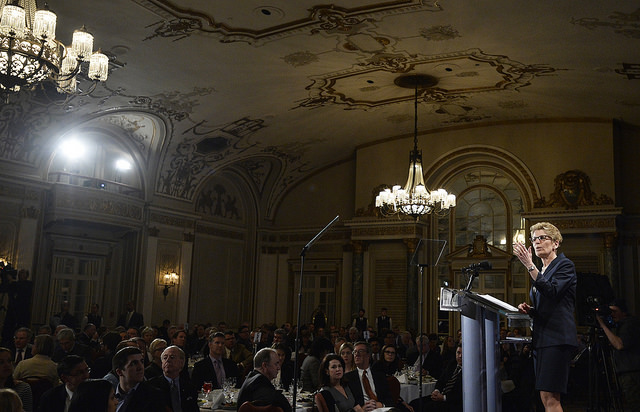Like this article? rabble is reader-supported journalism. Chip in to keep stories like these coming.
Last week, I was in Georgetown, Ontario. My mornings started by reading the hard copies of The Globe and Mail and The Toronto Star, and snarking about things that bothered me online. My kids played somewhere.
There was big news that broke that week. Martin Regg Cohn of the Star published a package on a fundraising scandal involving the Liberals. The suite of stories matched the perfect story arc: present the problem, demonstrate the depth and breadth of the problem and then feature the solution to the problem.
The Toronto Star getting satisfaction, basically.
The Globe and Mail was on the story too. Together, the papers paint a picture of a political system that’s driven by huge sums of money exchanged for facetime with the highest ranking politicians in Ontario.
Much of the money falls outside of provincial regulations on lobbying or political donations and both newspapers focused on the scourge of these loopholes. Kathleen Wynne promised to follow Ottawa’s lead and eventually ban corporate and union donations. Eventually.
I can’t decide if this scandal is proof that Ontario’s political system is disgustingly rotten, or simply a backwater way of doing things that’s kind of cute. It’s almost as if Ontario is a mini-United States, where money drives politics and shuts out the people.
The implications though, are horrible. You only have to look at Quebec to see what is likely happening in Ontario, at a scale that is much larger.
Quebec has gone through years of scandals and political changes to try and limit the influence that money has in politics. Corporate and union donations are banned. Political parties are publicly funded based on voter intention and individuals can only donate up to $100 ($200 during an election year).
The changes have fundamentally altered how politics are done in Quebec and has taken down many high profile politicians and business people for being corrupt.
Part of this process was the Charbonneau Commission, which examined fundraising practices of Liberal Party politicians and their involvement in giving out certain contracts. One of the more damning findings was that Liberal politicians had to meet fundraising quotas of $100,000.
And, just a few weeks ago, the anti-corruption squad UPAC arrested Nathalie Normandeau, former deputy premier of the province. She’s accused of ignoring recommendations and giving out contracts to favoured suppliers, when she was Minister of Municipal Affairs.
The company involved was engineering firm Norda Stelo, formerly Roche. While founded in Quebec, they operate in 50 countries around the world and have projects in and outside of Quebec.
Ontario’s Finance Minister’s fundraising quota was five times the Quebec ministers’ at $500,000. The Toronto Star investigation revealed that many Cabinet ministers were pulling in around $250,000 and that the Liberals were anticipating $3 million from a single dinner.
We know that many of the firms that were caught illegally funding the Quebec Liberals are major players elsewhere in Canada too, like SNC Lavalin. Since infrastructure projects are extremely lucrative, it’s no surprise that the construction industry accounts for the largest pot of political donations. Right behind them are teachers unions — who donate not so that they can see enormous profits, but just so they can curry favour with governments and avoid cuts to public education.
There’s no doubt: Ontario needs a corruption inquiry to examine the extent to which these political donations drive public funding into corporate profits.
Unfortunately, it’s unlikely to happen unless the Liberals initiate it themselves. The Ontario NDP has used expensive dinners and taken money from questionable sources, like big mining firms, for years, and are seemingly happy to work within this system, as long as it’s “more transparent.”
If the Progressive Conservatives are smart, they might call for an inquiry, but that would depend on whether or not their SuperBuild projects would be included. The lucrative P3 schemes that marked the Harris years would probably open up a rabbit hole of back-scratching and public money lining private pockets.
Perhaps the only hope Ontarians have are journalists like Regg Cohn who admits that this work is more likely to help the Liberals than hurt them, as he said on CBC’s Ontario Today. And there is a precedent: the Quebec Liberals created the Charbonneau Commission. They knew that they were strong enough to weather whatever bad news might surface from the Commission. So far they have, though the arrest of Normandeau and an Enquête investigation on MNA Sam Hamad could snowball into a full-blown crisis.
This would be low-hanging fruit for the ONDP and should be a no brainer. If the ONDP wants to have a hope in hell at winning the next election, it needs to abandon the old ways of political fundraising and drum up support for the proper tools, like an anti-corruption unit, to root out the rot in Ontario’s stank-ass system.
Like this article? rabble is reader-supported journalism. Chip in to keep stories like these coming.
Image: Flickr/Canada 2020



